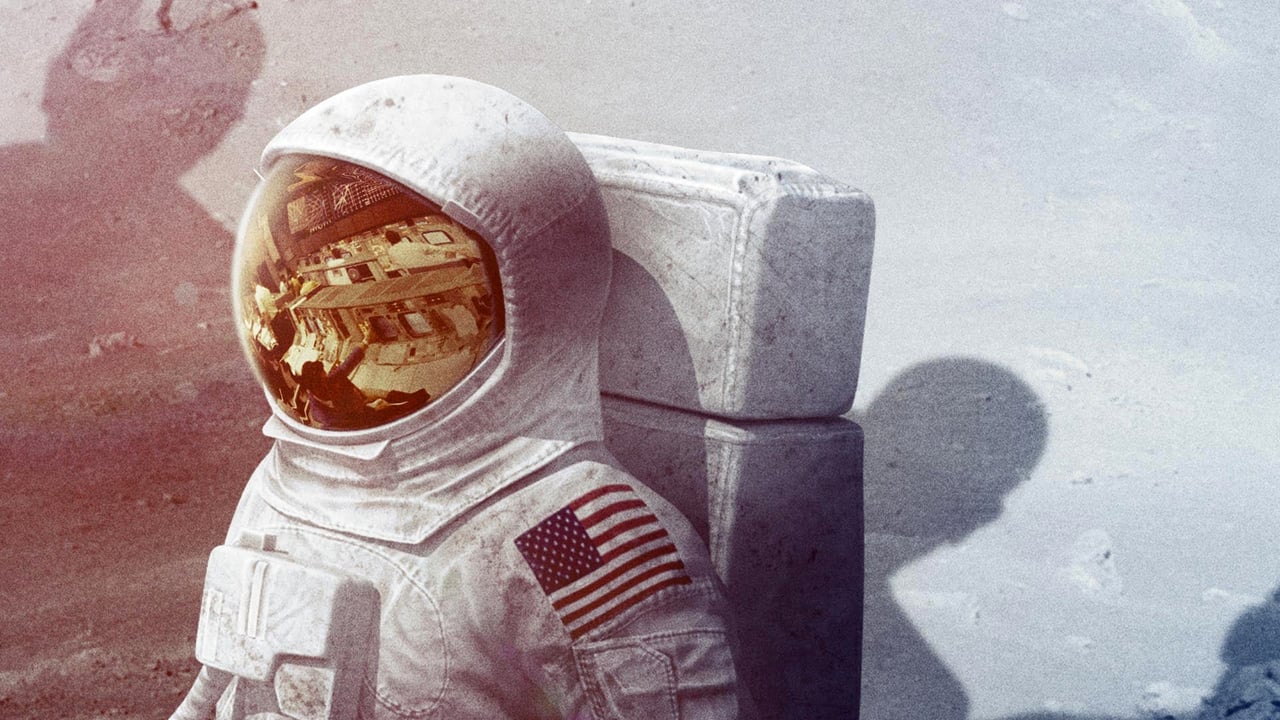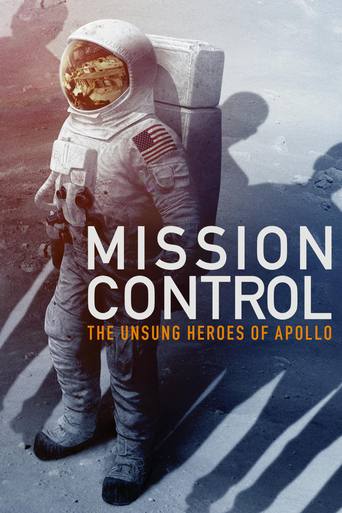Diagonaldi
Very well executed
Curapedi
I cannot think of one single thing that I would change about this film. The acting is incomparable, the directing deft, and the writing poignantly brilliant.
Megamind
To all those who have watched it: I hope you enjoyed it as much as I do.
Guillelmina
The film's masterful storytelling did its job. The message was clear. No need to overdo.
sspez
While it was great to see and hear anecdotes from the actual team members inside the control rooms - real history - I just felt the whole movie was too light, too casual and missed the chance to go deeper into the Mission Control genesis, development, installation, maintenance, etc... How did the initial systems work? We are told that Chris Craft had a big hand in the software development, but it was glossed over. At one point, they mention that the first few Mercury missions were managed from ground control in Cape Caneveral from inside metal trailers and that simple "gauges" were the instrumentation in front of the controllers. The immediate film clip that follows this comment is a shot of more modern consoles with video screens. Were there no archives available of those earlier control rooms? Odd that a story about precision is delivered with simple misses like that. What about the politics that moved Mission Control from MIT and Kendall Sq in Boston to Houston? (LBJ forced that post Kennedy). What about the companies that provided these key systems and the interplay with how they were used, debugged and improved (or not) over time? Not a waste of time to watch, but left me feeling the filmmakers could have really brought some deeper research to bear.
Michael Murry
I live in Houston. Hearing a story about the unsung heroes who worked behind the scene who worked in mission control was breathtaking. They tell the story of the day to day life. How most of them started and didn't have any idea what they were doing. It was a group of individuals who needed to come together and work together on separate projects to ensure the success of not only the race to space but the success of future space missions to come. The combination of real footage and interview questions to people who worked in mission control is absolutely amazing. You feel for these men, and you really feel the weight of all their decisions they had to make. As the story progress, you hear about the incredible mission success story of Apollo 13. Absolutely one of the best documentary I've seen on this topic.
jtncsmistad
As far as I'm aware there has not been a film produced and dedicated to the genuine unsung heroes of Mission Control who shined so spectacularly during the transcendent era of NASA first landing men on the moon. And my question is.......Why the hell NOT?! Well, the good news is that thanks to British Director and expert Editor David Fairhead now there FINALLY is at last a fitting tribute to the extraordinary pioneers who were so crucially instrumental in rocketing The United States to victory in "The Space Race" of the 1960's and '70's. For we now have the stunning new documentary "Mission Control: The Unsung Heroes of Apollo". And, man, I'm here to tell ya it is worth the wait! Fairhead has done a resolutely masterful job of chronicling the birth and next-to-impossible meteoric emergence of NASA in the wake of the Russians successfully blasting Sputnik 1 into Earth orbit in 1957. Through a riveting series of actual footage and news reports of the period seamlessly interwoven with jaw-dropping outer spacecraft flight recreation and interviews with representatives of the engineering team who integrated peerlessly to transform dreams into unparalleled achievement, Fairhead fashions a narrative that is as rousing and thrilling as it is richly informative and educational.For my money, the highlight of "Mission Control" are the interviews Fairhead conducted and intersperses throughout his remarkable production with the men who made it all happen both in our world as well as in the vast heavens above. The ambitious filmmaker secured riveting and revealing chats with the iconic likes of US Space Program leaders Chris Craft and Gene Kranz together with legendary astronauts Jim Lovell and the late Gene Cernan. And while the remarks and observations of these larger-than-life figures resonate profoundly, it is the words of the lesser known members of this steadfastly committed crew that really struck most poignantly. You see my own dad, Olav Smistad, worked with these gentlemen and knows most of them personally. And while his involvement with the Mission Control unit was cursory during the Gemini Program, his experience as a gifted and talented aerospace engineer and true pro with NASA mirrors exactly the unfaltering can-do sensibility of the exceptional guys featured in the film.Certainly I am bias. Yes, I am resoundingly pro-American Space Program. Sure I believe in the immensely talented and enthusiastic men and now the women (of whom there were none to speak of on the front lines of NASA in it's infancy) of the agency who are accomplishing so much, but who could realize so much more with the backing of their government, which was powerfully and consistently supportive in the formative and solidifying years of the national space exploration initiative. Now if we want to travel into space we have to hitch a ride with Russia.It should NEVER be this way.May "Mission Control: The Heroes of Apollo" uniformly inspire those with whom we have invested our votes, and our collective faith, into to lead this great country in facing head-on such harsh truth with thoughtful and productive comportment. In other words, DO something. And act in a manner that befits, and serves to honor, those humble heroes who were cheered on by citizens both at home and abroad every single step of the way toward and including those awe-inspiring, deeply moving moments when man wondrously walked on the moon. For there are still so many gloriously giant leaps for mankind to negotiate.Now and forever.
joepeartree
I had the pleasure of seeing "Mission Control: The Unsung Heroes of Apollo" during SXSW Film 2017. I thought the documentary was well constructed, juxtaposing stills and videos from the late 1960s and early 1970s with present-day video interviews of many of the engineers who ran Mission Control at NASA. This is the kind of documentary that could easily be 10 hours, so I can understand the challenges the director faced to determine what to put in and what to leave out from the primary feature.Several of the engineers interviewed in the movie were present on stage after the screening, including John Aaron and Jerry Bostick.The documentary included interviews with Mission Control managers and engineers Dr. Christopher Kraft, Gene Kranz, Glynn Lunney, Jerry Bostick, John Aaron, Gerry Griffin, Ed Fendell, Sy Liebergot, and several others. It also had interviews with astronauts Gene Cernan and Jim Lovell.The movie begins at the dawn of the Space Race with discussions of test pilots and moves quickly to the sense of urgency created when the USSR launched Sputnik and put Yuri Gagarin into space. It covers the Mercury, Gemini and Apollo programs well through Apollo 13, but then summarizes Apollo 14 through present-day ISS in only a few minutes. While the stories of Apollo 1, Apollo 8, Apollo 11, Apollo 12, and certainly Apollo 13 are incredibly engaging, I would have loved to see a bit more time devoted to events after Apollo 13, and a deeper discussion from the interviewees on how they felt as the program wound down and the last few Apollo flights were canceled.Nevertheless, the documentary is really great, and strongly recommended. In a few more years, all the great leaders who made six moon landings and much more at NASA possible will no longer be with us. Think about that as you watch this, and consider supporting continued space exploration.

